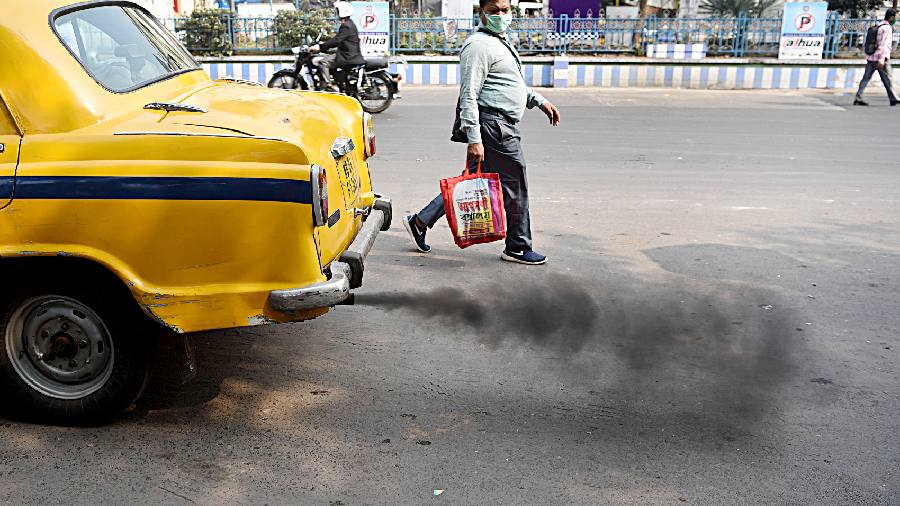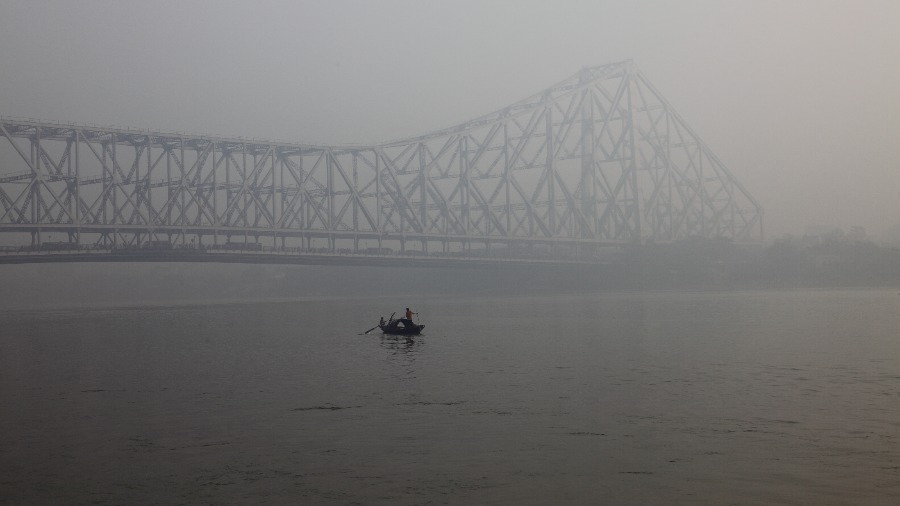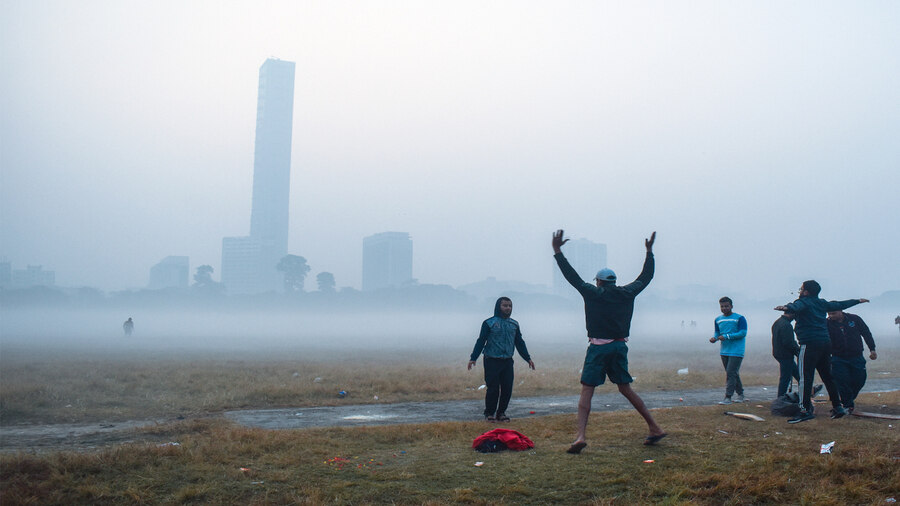The city’s air quality has persistently remained “poor” and “very poor” over the past fortnight, especially at night and in the morning, the National Air Quality Index shows.
Six of the seven automatic air quality monitoring stations in the city recorded “poor” and “very poor” readings almost on all days in the last fortnight, the air quality index shows. The six stations are located in Ballygunge, Bidhannagar, Jadavpur, Rabindra Sarobar, Rabindra Bharati University (BT Road campus) and the Victoria Memorial.
The station at Fort William was the only one that recorded “moderate” air on many days during the period.
According to the Central Pollution Control Board, “poor” air can cause “breathing discomfort to most people on prolonged exposure”. “Very poor” air can lead to “respiratory illness on prolonged exposure”.
Over the weekend, when a lot of people stepped out, the air quality was “poor” and “very poor”.
The air on the Victoria Memorial campus, which is visited by many during the winter months, and the surrounding areas was “very poor” at 6pm on Saturday and Sunday. That was the average of the air quality readings for the previous 24 hours.
The primary pollutant on both days was PM2.5, according to the index. PM2.5 are fine particles that can enter deep into the lungs and cause a variety of critical ailments, including cancer.
Amitabha Saha, a critical care specialist with AMRI Hospitals Mukundapur, said exposure to bad air could cause “congestion in the nose and throat, and cough”.
Arup Halder, a pulmonologist at Woodlands Hospital, said people suffering from asthma and chronic obstructive pulmonary disorder (COPD) were especially vulnerable.
A study by the National Environmental Engineering Research Institute (NEERI), published in 2019, identified vehicular pollution, open burning and coal combustion among the top contributors to the generation of PM2.5 in Kolkata during winter.
Compounding the pain inflicted by foul air is the decibel demon — bursting of firecrackers during weddings and by football fans celebrating their favourite countries’ win in World Cup matches. Many residents complained that they heard firecrackers going off at the dead of night, after matches ended.
The sudden sounds of firecracker explosions are especially painful for the elderly and children.
Bursting firecrackers is banned in the state. In an order issued in October 2021, the West Bengal Pollution Control Board had said: “There shall be a complete ban on the sale and bursting of all kinds of firecrackers, except green crackers.”
But in reality, many firecrackers that do not conform to the standards of “green crackers” are regularly burst in the city and the sound can be heard from a distance.
Kolkatans are usually accustomed to hearing such loud sounds around the time of Diwali.
But this winter marks a difference. Residents of Behala, Kalindi, Shyambazar and Kasba, among other places, told The Telegraph that they heard sounds of bursting of firecrackers several times in the last few weeks. “I heard repeated sounds of firecrackers going off near my home,” said a resident of Kasba’s P Majumder Road.
A resident of Behala said he heard Diwali-like explosion of firecrackers in his neighbourhoods during and after the matches of Brazil and Argentina. “I heard repeated sounds of firecrackers around 3.30am on Saturday after Argentina won,” said a Behala resident.
An official of the state pollution control board said they had not received any complaints of bursting of firecrackers.


